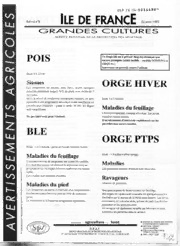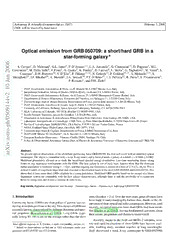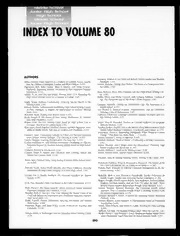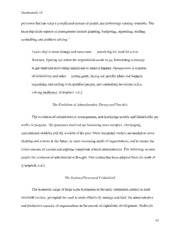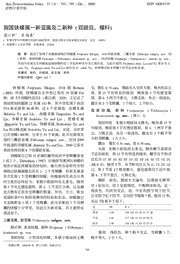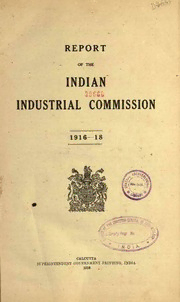
Report of the Indian Industrial Commission 1916-18 PDF
Preview Report of the Indian Industrial Commission 1916-18
GOVERNMENT OF INDIA | DEPARTMENT OF ARCHAEOLOGY CENTRAL ARCHAOLOG/CAL LIBRARY | tah iE INDIAN INDUSTRIAL COMMISSION. ITS REPORT SUMMARISED. ‘The Report of the Industrial Comraission, which has been sitting for Jnst two seam under the Chairmanship of Sir Thomas Holland, K.CS.L, has hhosn fesued and copies ean be obtained in a convenient ostaro form at the {Prion of ono rupee. Before summarising the Report itis important to n that the ematructive ‘proposals dopend on the acceptance of two principles: (1) thatin futuro Government must play an active port in tho. industrial development vf tho oomntry, with the aim of making India more sel-oontaino! {in respect of men and material, and (3) thet it is impossible for Governmert. to rungeriake that part, unless provided with adequate administrative equipment ‘anf forearmed with reliahlo seontifie and technical avico. ‘With these principles in mind, it will be convenient first to glance at te Adwinistrative machinery which the Commission proposes and then to examine ‘work wiieh it is intended todo. The administrative proposals include tlw ereation of imperial and provincial departments of Industries and of an Amporial Industrial Serviee. ‘Tho imporinl denaviment wuld be in eneze of ‘a member of the Viceroy’s Bxcontive Council, assisted by a Bonn of three members entitled the Indian Indnsiries Bonnl, and be rejonsble for industrial policy of Govarnuient and tho inauguration and exesying out of a uniform programme of industrial development throughout. the country. The. actual administrative work would be alino:t entirely decentralind aud would devolve 6a. Local Goveraments, The performance of these dutics would necessitate the employinent of a large stall of officers wha qualieations would primarily dopend upon a knowledge of mecharfeal engineering and the forms- tion of an Imperial Industrial Service ix sugeosind in. ondor to safeguard Government against the dangers and difieulties of eaeusl recruiting. This seevige woald consist mainly of mechanieal enginecrs andl cnginooring techino- ogists, the majority of whoni would be employed under the Local Gorern- meuts, The headquarters of the Department and of the Board shotld be. with the Government: of India, ‘The provincial departments would bo administorad by Directors of Todusiries, assisted by specialists and technical adfisors who would ususliy be seconded from imperial services for work under the Local Goverament. A provinelal Dirgoior would tha: ba ablo to dorelopo the industries of his province with the help of competent engineer and scientists. Te would bo advised by a provincial Bonrd of Indnstries, composed main]y of non-cffcials’ ‘nil hw should hold the post of a Sootetary to Goverment to séeure expeditions ‘and cileative despateh of work. It now reuains to consider the work which this oxganfiation isto carry out and the conditions of Indin whioh render exsmntial a policy of netivo intervention on the part of Government in the industrial affairs of,the country. Tue frat chapters ofthe Report ceal wih Todin as on. industrial epuntry, hoe [present position: snd ling, potentialities. They show how Little the march of ‘odern industry las affect the great bulk of the Indian poptlation, which remains engrossed in agriculiure, winning alana subsistenos from tse rail hy antiquated inetlods of cultivation. Sach changes as have been wrought in frral aveas.are the elects of ecazomio mathor than of industrial evolution. Tn ceriain eentres the progres of western industrial methods ia ‘discernible andy mmber of thee are described in onfer to proamt a picture of tho industries: are eazvied on, attention being drawn to ‘the shortage and to the general inefficioncy of Tndian labour and to the Inok ‘of an indigonous. supervising: ageney. Proposals ore made for the better expinitation of the forosts and fisherice. In disomsing the industyial Auflofencios of India, the Report shows how xmequal the deyelopment of our iulustsial eystern has been. Money has heen invested in commerce rather ‘than industries, and only those industries have Leon taken up which appeared tn alfersife and. easy profits. Provious to the war, foo ready reliance was plheed on imports from ovorseas, and this habit was fostered by the Gorern- nent practice of purchasiag stores in Bngland. Tdi proiucos nearly all the raw materials neceseary for the requirements of a madern community ; hut is unable to manufactire many of the articles and materials essential alike fn times ot peace and war. Por instance, her greal, tentilo industries are dependent upon supplics of imported machinery and” would have to shut down i€ command of the scas were lost. Tt is vital, therefore, for Government to dnsuro the establishment in Indin of thos industries whose absence expores tuto grave danger in event of war. ‘The Repost. advocates the introduction of mnie mvihods of agriculeare, and in porticular of Iabour-saving machinery. Greater eficieney in caltivatinn, and in propating produce for 4he warlet would follow, labour now wastefully employed would bo at fr00 for industries, and the establishment of shops for the manufacture and repair cf machinery would lend fo the growth of a huge engineering industry. After exmnining the mesomsses for generating power, the Report says the coal of Tadia is generally of a poor quality and the radius within which it ean be econrmically used is accordingly Kimited. Moreover, the extension of metal Tursgieal industries alrendy stortod involves a severe uttack on our vistble ssipplics of coking coal.. ‘The Commission recommends a special survey of the foal postion in. India, Tho oil fields of Burma arc being: rapidly drained and ‘no othors of equal valae have been proved. Wind power is too intermittent for industrial use. Attention should be direeted to more economical methods ‘of using wood fuel, and new materials for industrial aleobel should be Snvestigated. ‘The luaroosing of water power appears, however, to afford n maord reliable source of energy, especially with n view to the development of “inrme-oleetrie industries ; ant’ Goverminent isurgently enjoined to undertake ahydrographic survey in order to dotermine the places which offer possibilities for thi exiablishinent of lydro-cleetrio installations. ‘The noxt chapter deal with ‘The Tndian in Industries” They discuss measures designed to improve the efficiency of the Tudian artiaan and to fevcontoge the educated Indian to tako part in industra) enterprise, It is ‘shown that the relative lowncss of wages paid to Indian labour is eounter- Flanged by the comparative inefficiency of the individual Indian workman, ‘The Commission assigns throe eausoe for this inefficleney, cfs. the absonce of education, the prevailing low standard of eomiforé nd the offeols of preventible ‘Givease The Commission oxpreses itselt in favour of universal primary ‘education, but considers that it would be unfair and unjust to impose pon. anployor: this duly, which devolves rather upon the State and local muthorities, Bot cdiention of a technical Kind is. also required, and the toothod of insiruction to be followed will vary for workers in organised aud for svorkers in cotiage industries, the latter of whom, it msy be remarked, eonsider- ably exosed the formor in’ numbers, For eottage industries the Commission proposes an ecient system of edacation fn industrial schools administered by Then! mastars with practical knowledge of the industries taught, and controlled iy the Departments of Tndustrice. ‘The extension of markoting facilities mast 9 biand in hand with the teaching of improved procases. In the ease of Gremisel industeles mochauieal engineering is taken ss 2 typisal instance, and {he proposals inclnde the establishment of a system of organised apprentice ship for # period of four ox five years, with practieal training in the workshops ‘and thooretival insiruction in attached teacbing institutions. 3 cj ‘The Cinamission placos better housing in the forufeont of its reemnisim ine ‘tions to raise the standard of comfort of the Indian avtisaa, Subject to oettain safeguans, Goremment should use ils powers uader the Land Acquisition Act 4» soquire sites for industrial dwellings, and land so acquired should. be leased. fo omployers on cas terms, Sprcial reincdies axe proposed in tho case of Bombay, where the publems of congestion are unique. General measures of ‘wolfaro work among factory employés are ako suggested, end special attention should be paid foto improvement of publie health. ‘The elimination of such Aiseases as Rookworm and malevin, which are prevalent almost everywhere in Tadia, would add eno-maualy to the productive eapaeity of the Tadian Inhoure ‘The general aversion from industrial pursuits of the educated Tudian is sceribed to horeditary prodispesition accentuated by an unpractical system of eiucation. “A complete revolution in the existiag methods af trainin proposed, Por manipulative industries, such as wechonteal engineericg, an ayprunticeship system, siailar to thal suggested for artivirs shonle ho adopted. ‘Tho youth who sepizes to become a foreman or an enginecr, must learn to take ‘of his cont at-the start and should servo a torm of apprenticeship in the ‘workshops, supplemented dy courses of theoretical instruction. At the onclusion of this period of training he may be allowed to specialise in Particular subjects. For non-manipulative or operative industries, on the ‘oilor hand, the teaching institution should be the main training ground, though ractieal experience is also nocosary. Special ‘proposals are’ made for commercial and mining education; and tho future establichm: impoviab colleges is aduunbratod, oue for the highost crado of engineering and this other for metallurgy. ‘To ensure the maintensnee of elose relator: Lotyeen the training institutions and the world of industry, the general eonteol -of tech nical education should be transferrad to the Departament of Tndustrie. ‘Tho remaining chaplers of thu Report deal mor speeitieally with Govern= ment intervention in industries, Government clung long to the traditio of aise faire in industrial wmttors; but when im recent yours iuktempted to play 44 moré detive port in industrial devslopmont its efforts wore rendered futile iy ‘he absence of scientific and technical advies to assist it in estimating the value of industrial propowitiong and by the lack of any suitable ageney to earry out approved propos, To remedy the first af these defects, a reorganisation of he existing seiemtifie sorvices is advocated, in such a way as to unite in fmporil services, classified according to science subjects, all the seitlored workers now engaged in the provinces on isolated tasks. Rules are suguested to gover the rations between the members of these service nnd private industriflists cooking adviee, The situation of resoorch institutes and the oo tions and terms of employment of these serviose are questions far the decision ‘of whieh the Commission considers that the appointment of a special oommitics is nooassary. ‘The administrative machinery with which Government most be equippad and some of the functions whioh that machinery will enable it to perform have already been described ; but there aro. many other directions in which the Aayelopment of industries can be simulated. Useful and up-to-date informa tion on commercial and industrial msttezs 4s essential both for Government and for private merchants and jndustvialiss, A scheme is propounded for <olleeting- such information and for making it available to the public through fliers of the Department of Industries. ‘The purchase of Govermunent stores fn the past bos heen condactel in such a way ax to handiexp Taian mancine- turers in competing for orders and to retatd industrial development in Iadis. "Ths Caunnaissiom proposes that the Doyariment of Incusties shenld he in eharge of this work and that orders should not be placed with the Stores Dspaxtmont of the India Officn ntil the mannfacinring espebilitis of India have frst been. ustel. A chapter is coneeraed with the law. of land acquisition and 7 . —, ‘enunoiates principles iu accordance with which Government, might compa torily acquire sites for industrial undertakings ; in another, tho various ‘methods by which Government might render direct technical nid to industries ro explained. ‘The Commission considers that otdinnrily Government itself should undertake manuincturing operations only for the “production of lethal munitions, The administration. of tho Boiler Acts the Mining Rules and the Blectricity Act, the employment of jail labour, the prevention of adulterntion, Jotenis, and the registration of business names, of trade marks and of puriner~ ‘hips are matters which are specifically dealt with.—In the opinion of tho Comintssion the compulsory resistration of parinersbips is practieable, and the question shout be examined by Government with a view to legislation Tndustrial co-operation is disoussed with reference to swall and cottage industries ; and the vexed question of the effects of zailwey rates on infustries fs considered, ‘The Commision Uhinks that reduced rates to and from portshave ‘been prejudicist to industeial dovelopment and thot the position requires enretul examination with a view to the temoyal of existing anomalies. In particular 4 should. be possiblo to imorcase the rates on raw proluce for export and on than machinery and stows for industrial uee. ‘Tho addition ‘of & commercial member to the Railway Board -and tho better representation ‘of commercial ond industrial interests at the Rnilway Conference would help Yo swoure amore equable system of mating. The improvement of waterways and the fotmation of a Waterways Trust at Caleutia are also propoed: ‘The Commission Teys emphasis an the disorgan(sation of Tndian capital aad its shyness in coming forwand for industrial dorelopmont. There is no Jack of money in the countey, yet the industrialist cannot obtain the usy of it “axcopt on terms so exorbitant ax Lo devour a Inrge port of his profits ‘There t ‘a orying necosity for the extension of banking fecilities in the mofusil. The Cotamision is disposed to favour tho establishment of an industrial bank or banks; but i considers that tho appointment of an export commitice is eeoscary to deal with this subject snd asks Government to take netion at an early date, Aa an‘ intorim’ measure, a selieme is propounded for thy provision, of current finanee to middle-class industrialist, by which the banks would opon fash orcdite in farour of applicants approved by the Deportimont. of Tadustrios fon the guaranfeo of Gorernment. Various. other methods of financial fssistarce by Government aro suggested, in particular tho provision. of plant. for emall and eottage fudustrios on the hirespurebave system. To sum up, the Commission finds that India is a country cd raterials and in infastsal posailitiey but poor in manufoeturin plish- ‘ment. The dodeiencies in hur industrial system aro such as to re liable fo foreign punotration in time of peace and to serions dangers in time Of war. Her labont is inefieiont, but-for this reason capable of vast improvement, She elles almost entiroly on forcign souroes for foremen and supervisors; mud her Tateligenteia have yet to develope a right tradition of induattialinn, Hoe ‘stores of movey lie inert and idle, The necessity of securing the economic safety of the country and the inability of the people to secure it without the ‘co-operation and stimulation of Government impose, therefore, on Goverment aa policy of energetic intervention in industrial affaits; and to dischargo the mulifarions sctivities which this policy demands, Government must be filed with a suitablo industrial equipment in tho form of imperial ond incial departments of Industries, ‘Tho recurring cost af the proposals ie @stimated at Ra, 86 lakhs; they sve a capital expenditure of Ts, 150 lakhs, mainly on edueativnal Institue ms, and a farthor capital outlay of Rs. 05 laktw is anticipated for futare Mlevelopments. ‘Uke Commission considers that this expenditure may be worked up to-nt the ond of a period of 7 yeaze. x REPORT OF THE INDIAN. 20666 INDUSTRIAL COMMISSION 1916—18 CALCUTTA SUPERISTENDENT GOVERNIGENT PRINTING, INDIA 18 = aa INDIAN INDUSTRIAL COMMISSION. 1916-18 LIST OF MEMBERS. President. 1, Sir T. H, Holland, KSI, KOLE, Die, PRS. ‘Members. 2 Mr, Alfred Chatterton, OLE., BS, 7.0.6.1. AMIOB; MILK 8, The Hon’ble Sir Farulbhoy Currimbboy Ebrahim, Kt., C.B.E. 4. Mr. Edward Hopkinson, M.A, DSc, LLC.B, MIME, MLBE, 5, The Hon'blo Mr. C. B.Lov, OLB, LCS, 6, The Hon'ble Pandit Madan Mohan Malaviya, BAA. LLB. J, Tho Hox'ble Sit Kajendra Nath Mockerjoo, KOLB, 8. The Right Hon’bic Sir Horace Curzon Plunkett, P.0, DOL, LUD, PRS, KOV.O, ; 9, The Hoa’blo Sir Francis Hugh Stewarh, Kt, M.A, OLB, 10, Sir Dorahji Jamsotji Tata, Kt, J.P. Mr, I. D. Bell, LOS —Sooretary. Arr G, H. W. Davies, LOS —Toint Seoretary,
The list of books you might like

Credence

Better Than the Movies

What Happened to You?

Shatter Me Complete Collection (Shatter Me; Destroy Me; Unravel Me; Fracture Me; Ignite Me)
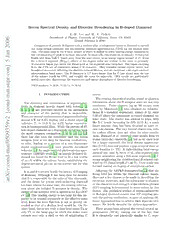
Boron Spectral Density and Disorder Broadening in B-doped Diamond

c 2009 by Azeem Sarwar. All rights reserved. - ResearchGate
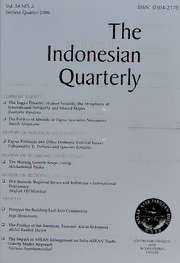
The Indonesian Quarterly Vol. XXXIV No. 2 Second Quarter 2006
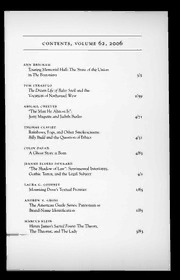
Arizona Quarterly 2006: Vol 62 Table of Contents
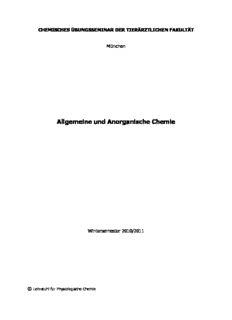
Allgemeine und Anorganische Chemie
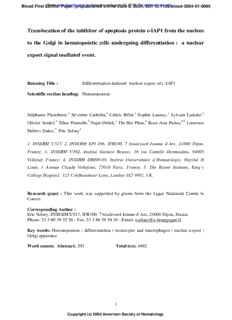
c-IAP1 shuttling from the nucleus to the Golgi apparatus in - Blood
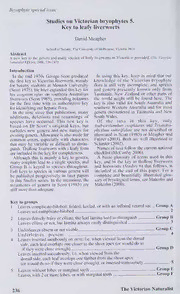
Studies on Victorian Bryophytes 5. Key to Leafy Liverworts
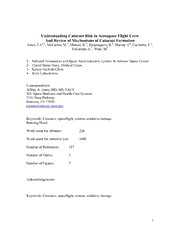
NASA Technical Reports Server (NTRS) 20060051793: Understanding Cataract Risk in Aerospace Flight Crew And Review of Mechanisms of Cataract Formation
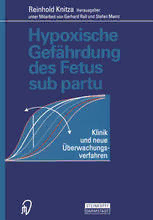
Hypoxische Gefährdung des Fetus sub partu: Klinik und neue Überwachungsverfahren
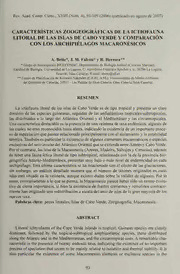
Características zoogeográficas de la ictiofauna litoral de las islas de Cabo Verde y comparación con los archipiélagos macaronésicos
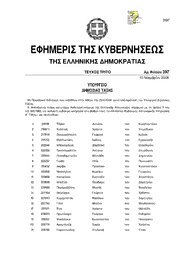
Greek Government Gazette: Part 3, 2006 no. 397
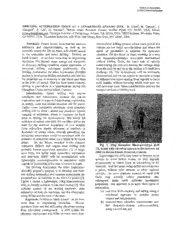
Drilling Automation Tests At A Lunar/Mars Analog Site
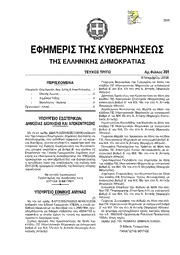
Greek Government Gazette: Part 3, 2006 no. 391
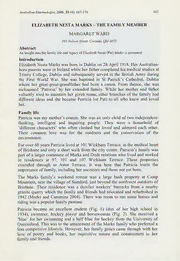
Elizabeth Nesta Marks - the family member
